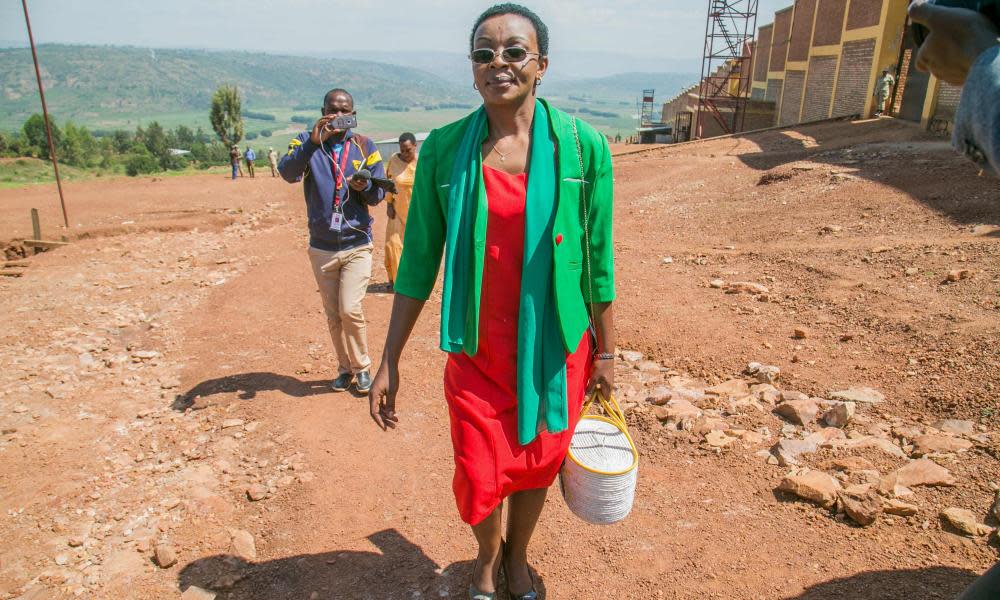Freed Rwandan opposition leader vows to continue struggle

A prominent opposition politician in Rwanda who was among more than 2,000 prisoners freed this month has vowed to fight on until people in the small central African country can “speak up without fear”.
Victoire Ingabire, 49, was arrested in 2010 and given a 14-year sentence two years later.
“I am out of prison to start a new struggle. We want Rwandans to speak up without fear. This is what we are going to focus on in future. If demanding free speech, respect of human rights for everybody in this country makes me go back to prison, then I am prepared for it,” Ingabire said.
She was convicted of a terrorist conspiracy to undermine the government and downplaying Rwanda’s 1994 genocide but says the charges were a fabrication and politically motivated. “It’s good that I am out of prison,” Ingabire, who leads the FDU-Inkingi opposition party, said. “It appears that the government has finally realised it can work with us. This is good.”
Kizito Mihigo, a gospel singer jailed after recording a song critical of the authorities, was also freed after serving a third of a 10-year sentence.
Supporters said the real reason for Ingabire’s detention was the former lawyer’s criticism of the government before the 2010 presidential election.
There was no official explanation given for President Paul Kagame’s decision to pardon such a high-profile figure, though he told parliamentarians last week that suggestions he had given way to “foreign pressure” were wrong.
Kagame has won international praise for the stability and economic development he has brought to Rwanda since the 1994 genocide, when an estimated 800,000 people were killed, but he has also been accused of running an authoritarian, one-party state.
The 60-year-old former soldier won a landslide victory last year, securing a third term in office with 99% of the vote. His ruling Rwandan Patriotic Front remains unchallenged, and has developed substantial economic interests.
Kagame warned the released prisoners to be careful. “If you are not careful you can find yourself back in prison or back abroad on the streets. This Rwanda as it is now, we have learnt a lot from its history. If you are wise, you better be humble and work together with others in cooperation,” he said.
Ingabire, who returned from Europe to contest elections in 2010, said she would fight to free other prisoners, particularly Diane Rwigara, an activist who tried to stand in the 2017 elections.
Rwigara, 37, was disqualified from running on technical grounds and then arrested on accusations of forgery and inciting insurrection. She denies the allegations but remains in detention.
“Having political prisoners in jail taints the image of this country,” Ingabire said. “When all these political prisoners like Diane Rwigara are out, it’s a good thing in a country said to be promoting women’s rights,” she said.
Ingabire said she was released because she was innocent.
Despite some discontent over unemployment and other domestic issues, and a controversial reputation overseas, Kagame appears to be genuinely popular in Rwanda, which has had some of the fastest economic growth rates in Africa and has become known for its stability in a deeply troubled region.
However opposition activists, many in exile, say he runs a “police state”, jailing journalists and assassinating dissidents, even overseas. Others question the reliability of the economic statistics showing growth and allege that increasing cronyism could undermine economic progress.

 Yahoo News
Yahoo News 
